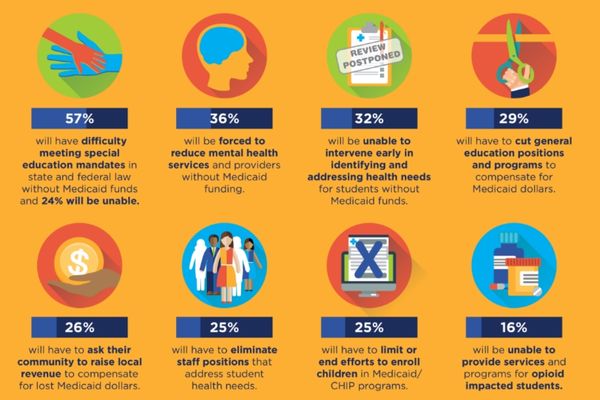Pennsylvania District Embraces Science-Based Curriculum on Opioid Abuse
August 01, 2017

Substance abuse experts often say that drug addiction does not care about race, socioeconomic status or place of residence. And when William Kerr, superintendent of the Norwin School District, saw the ravages that opioids were having on the suburban area outside of Pittsburgh, Pa., he knew the schools had to act to stem the human devastation.
In 2016, the Westmoreland County coroner’s office reported a spike in deaths related to alcohol and drug overdoses — from 87 in 2014 to 174 two years later. The primary culprit was an increase in opioid addiction. In a two-month period, five recent graduates of the Norwin schools had overdosed, including two brothers.
School district representatives began working with state and federal law enforcement agents to find ways to educate students about the dangers of these highly addictive opioids, which could be prescription painkillers such as OxyContin or Vicodin, or heroin. It was the first time the 5,250-student district had adopted a comprehensive program to address drug abuse.
Understanding Addiction
Norwin educators found Operation Prevention, a new curriculum created by Discovery Education through a grant from the federal Drug Enforcement Agency. The research-based curriculum differs from previous attempts to dissuade students from using illicit substances because it uses interactive tools to explain how the brain works and how opioids impact the nervous system to reduce pain and produce “feel good” endorphins. It also incorporates conversation guides for parents and communities.
“We felt it was the best way to address the epidemic of opioids and heroin in our region,” Kerr says.
Operation Prevention is effective because it focuses on the science of drug addiction and explains how just one use can lead to addiction, says Timothy Kotch, assistant superintendent for secondary education, who has adapted the curriculum for Norwin’s middle school science classes. He noted that the early teenage years are often a first introduction to painkillers, perhaps because of a sports injury or extraction of wisdom teeth.
Discovery’s middle school curriculum offers lessons on the nervous system, neurotransmissions and explanations for why symptoms of opioid withdrawal occur in the body. Operation Prevention also produced videos with stories from addicts and family members — many were high-achieving students and adult professionals who tried prescription opioids to either ease pain or fit in with peers. Often, young adults start out by smoking marijuana, and most said they received their first opioid pills from a friend or relative intending a one-time use.
Discovery Education was approached by the Drug Enforcement Administration to help write the curriculum and disseminate it through the company’s nationwide net of contacts. The free materials have been downloaded about 700,000 times, says Kristin Hirst, Discovery’s vice president of corporate education partnerships. To further focus on early intervention, DEA agents requested that Discovery build a curriculum for elementary-aged students, which will be released later this year, she says.
“This curricula makes a point of looking at the entire community — we created a resource for teachers, students and parents to access and jump start the lifesaving conversations,” Hirst said.
Norwin plans to offer the high school curriculum this fall and will bring in the elementary curriculum as soon as it is available, Kotch adds.
Personal Emphasis
In Norwin, Kerr promoted the program through a series of meetings with parents and community members last year with positive response, he says.
“Everyone has embraced it because they understand the magnitude of the problem. The bottom line is, drugs kill dreams and we’ve had many families impacted here.”
Kerr’s journey also was personal. In 2015, the superintendent’s 37-year-old daughter, a high school health teacher in Norwin, was arrested for heroin possession and subsequently lost her teaching license. At the community meetings, Kerr spoke openly about her recovery and the impact on their family — and how he can see the situation as a blessing because it led to his daughter’s treatment and recovery.
“This matter now provides an opportunity for all of us as a school community to develop a comprehensive initiative that will act as a catalyst for change that improves the health and well-being of people in the greater community and region, especially for our young people,” he said at one meeting. “Now, more than ever, I want to help other individuals and families have a better understanding of substance abuse and addiction and what can be done about the epidemic facing the greater community.”
Author
Advertisement
Advertisement
Advertisement
Advertisement


